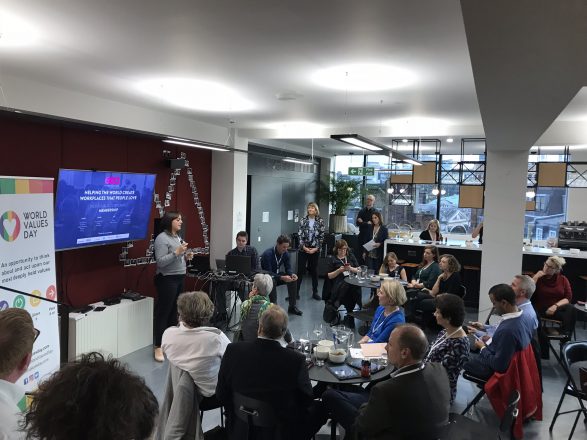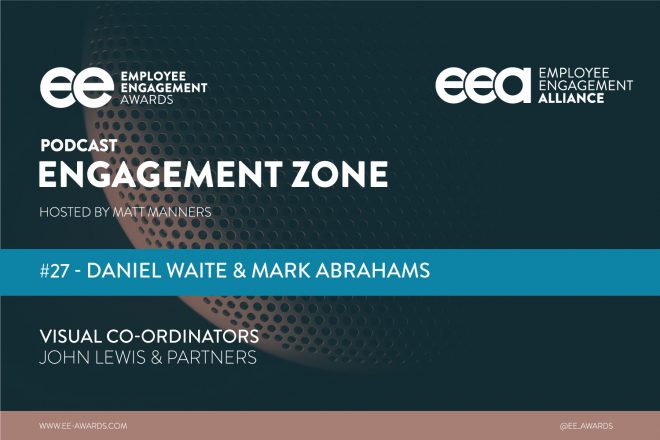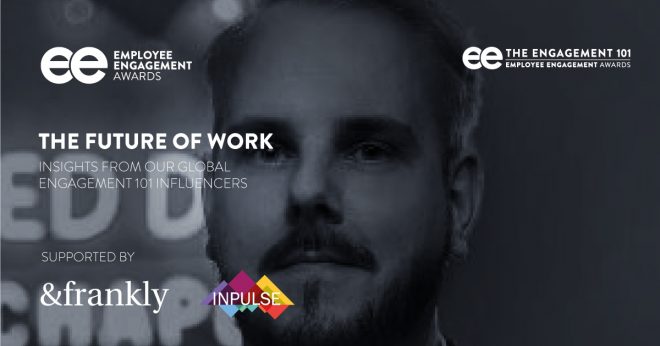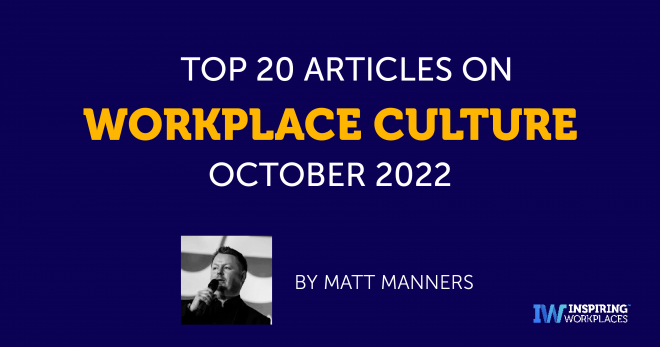
13th November 2023
Guest Blog: Psychological Safety: The Foundation of Employee Voice

This guest blog is written by David Bellamy, Founder & CEO of Harkn, the real-time employee voice platform.
Most companies want to hear more from their people. Initiatives range from the traditional employee engagement survey to ‘Ask me anything’ sessions or – our personal favourite example from a beer company – ‘Beers with the CEO.’
These events form a valuable part of any organisation’s listening strategy, as do more regular events like 1-1 check-ins with your team members.
But they all share one fundamental flaw: they lack psychological safety.
What is psychological safety?
William Kahn describes a psychologically safe environment as somewhere you “feel able to show and employ oneself without fear of negative consequences of self-image, status or career.”
In the workplace, this means people feeling able to speak up without fear of consequences – whether those be direct or indirect.
Decades of research into why employees fail to speak up at work has produced consistent results; silence in hierarchies is instinctive and safe. Put simply, for most people at work, safe is better than sorry.
It’s not difficult to understand how we’ve ended up here.
Nobody wants to be labelled as ignorant, so we avoid asking questions. We don’t want to be seen as incompetent, so we’re reluctant to ask for help or admit a mistake. A reputation for negativity could be equally challenging, so we won’t challenge the status quo.
And we won’t offer our guidance or advice to our colleagues unless explicitly asked, because who wants to be seen as the team know-it-all?
Silence is the norm because the alternatives are risky.
Why does psychological safety matter?
When Google’s famous ‘Project Aristotle’ asked, “what makes a team effective at Google?”, they landed on psychological safety as the most important characteristic.
Imagine how your company would function if all your employees felt able to share what they felt, thought, and experienced at work. You’d benefit from improved employee wellbeing, more valuable insights, and greater thought diversity and innovation.
In other words, you would hear more of what matters. Organisations that can unlock the powerful voices of their employees will reap the rewards.
Context is king
Every company is likely home to both safe places – where people will share ideas in the knowledge that they’ll be well-received – and unsafe places, where people will be reluctant to share that same idea for fear of an adverse reaction.
Psychological safety is fragile, subjective, highly dynamic and – like most other things in the workplace – context-sensitive.
So, how can you establish psychological safety in your organisation?
Timothy R. Clark came up with a framework called ‘4 Stages of Psychological Safety.’ According to this framework, humans need to feel:
- Included
- Safe to learn
- Safe to contribute
- Safe to challenge the status quo.
And, according to Clark, we need to feel all these things without fear of being “embarrassed, marginalised, or punished in some way.”
Thinking back to my early career, I can see how the make-up of a team influenced how I would behave and what I contributed. Equally, my behaviour will have affected others’ ability to speak up or contribute fully.
Put simply, circumstances play a significant role in determining which stage of Clark’s model we are at at a given time.
How Harkn helps
It became clear early on in our development that anonymity needed to be at the heart of the Harkn platform, to foster trust and inclusion and empower marginalised voices.
The daily check-in encourages everyone to share how they’re feeling, for insight into emotional wellbeing and day-to-day experiences inside your organisation.
Because the process is completely anonymous and without constraint or direction, people can write and share anything they choose.
This approach of making every interaction completely anonymous, yet completely transparent, is consistent throughout the Harkn platform.
We’ve seen for ourselves that, when psychological safety is guaranteed, people are empowered to speak openly and honestly.
Hear more of what matters
Communicating without status – without avatars, visible profiles, or personas – is wonderfully liberating. There’s no risk in speaking the truth, and there’s no benefit in lying.
Armed with psychological safety, we can focus on problem-solving and effective action-taking – rather than on problem identification or venting.
Most importantly, anonymity teaches us to listen better and respond appropriately. “I’ve heard you, thanks for sharing,” is sometimes enough.
Harkn lets your people share without judgement and fear and gives you the invaluable insights you need to make better decisions, faster.
For more insights into psychological safety in the workplace, read the full blog on Harkn’s website: Why Psychological Safety at Work Matters (harkn.com)





